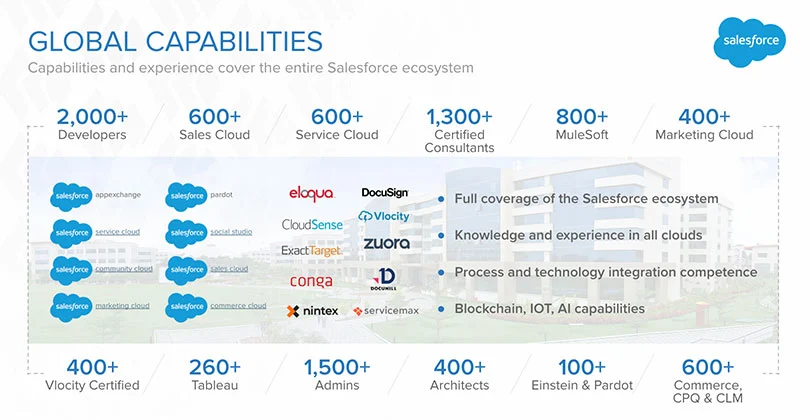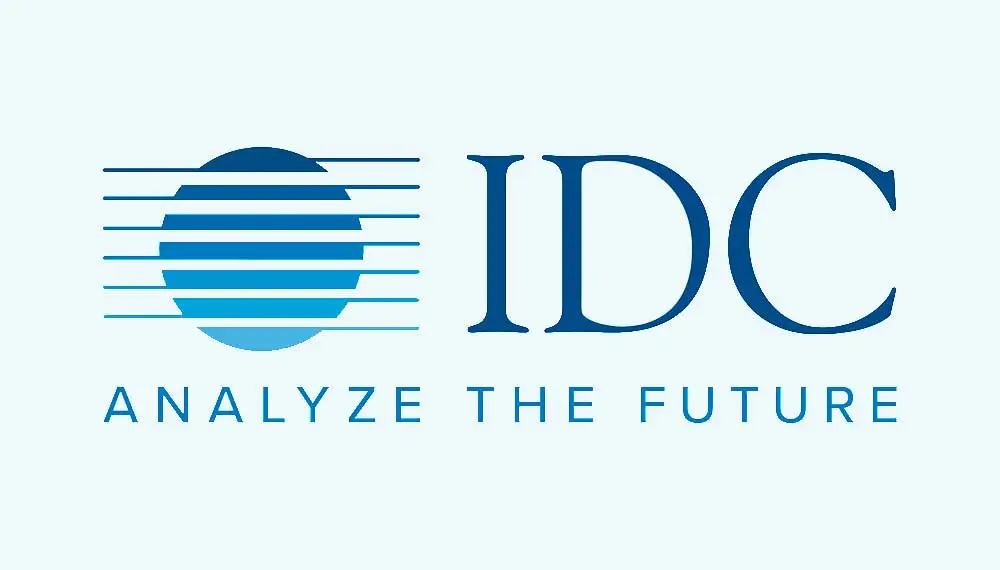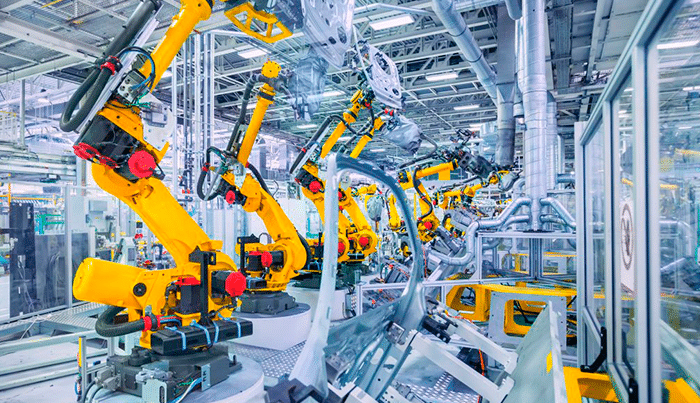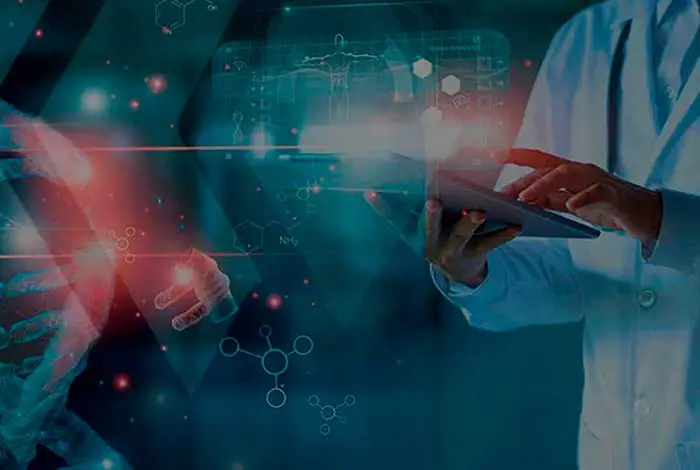Automation is a transformative solution for thousands of Salesforce customers. But while machine learning and AI tech are often hailed as a silver bullet for money and time-saving processes, can they save lives?
“AI cannot only enable predictive analytics for early intervention — a crucial function in times of crisis — it can also support clinical decision-making and empower more holistic patient care by leveraging collaboration across multiple specialists,” Nitin Rakesh, CEO and Executive Director of Mphasis says. Here are four distinct ways AI innovations are already helping healthcare save lives:
1. Early disease detection
Early detection is essential to expand a patient’s treatment options and improve recovery rates. Although methods for early screening rely on visual signs, tissue and blood samples, etc., AI scanning capabilities can analyze data from chest, heart, lung or breast samples and identify anomalies often missed during exams.
By generating algorithms, machine learning can process millions of images and identify cellular signs of disease. Such innovation is transforming critical components of health care, particularly radiology and pathology labs.
“We’re deep into research on the AI front of trying to figure out how do you detect different tumors and skin conditions, and how do you make it really accurate so that it can be a true assistive device, or an assistive tool, for both dermatologists and dermatopathologists,” Dan Lambert, CEO at PathologyWatch, a digital dermatopathology diagnostics company, said.
2. Innovative surgical techniques
Much like standardizing patient data improves the quality of data-driven healthcare population management, for instance, perfecting standard procedures and surgical techniques also impacts patient recovery by sharing best practices while also exposing vulnerable areas for further exploration.
George Jetson undergoing surgery by Mister Roboto was meant to offer outlandish, cosmic humor. But, in fact, it proved more prophetic than kitschy. “Artificial intelligence has the potential to transform the way surgery is taught and practiced,” Dr. Liz Kwo says.
Kwo explained that AI-driven surgical robots are computer-manipulated devices that allow surgeons to focus on the complex aspects of surgery. Designed to assist during operations, they decrease surgeons’ fluctuations during surgery and help them improve their skills and perform better during interventions.
“With the help of ML techniques, surgical robots help identify critical insights and state-of-the-art practices by browsing through millions of data sets,” Kwo added.
3. Potentially eliminates human error in medication
Did you take your medication today? Are you sure? It’s a question over half (66 percent) of Americans who take prescribed medication face daily. And every year, up to 9,000 people die from medication errors. It’s the eighth leading cause of death in the U.S.
According to experts, errors happen when a medication is “prescribed improperly, is prepared or dispensed improperly, when drug information is entered into a computer system incorrectly, or when a patient takes a medication incorrectly.” And it pertains to over-the-counter medications, vitamins, supplements as well as prescription drugs.
Healthcare is developing solutions to eliminate these tragedies. For instance, people with diabetes are already using automated portable devices that control insulin dosage. Wearable devices that track vital signs can assist a healthcare provider in determining conclusively if their patient needs medication or not.
Increased interoperability among service providers also helps reduce these risks. Secure digital access to a patient’s medical history via EMR devices allows AI tech to help organize and monitor a patient’s medication history to alert risk of errors in distribution, dosage, or conflicts with other medication or treatment plans.
4. Offers support to frontline healthcare providers
Humans make mistakes. Unfortunately, unlike taking a wrong turn for a delivery or calling a coworker by the wrong name, errors in patient care are serious. The past three years have exposed the pressures healthcare providers often face to keep us healthy. And the effects reflect a rising percentage of burnout among physicians and nurses.
Our vision for the future role of AI tech in healthcare is to develop a new approach to healthcare that makes patient care more manageable. Today, physicians can invest in an automated system that increases self-service portals for scheduling appointments, provides billing and payment status updates, and monitors a patient’s treatment plan. But the future of partnering with AI technology can equip physicians with technology for skills training, offer big data for clinical research, real-time digitalized patient data for better decision making, and tools to engage a personalized patient experience.
At Simplus, we design Salesforce-driven solutions that simplify backend processes for essential players in the healthcare system. But our goal is to ensure that what happens behind the software is a positive experience that empowers stakeholders to do their jobs effectively and efficiently while supporting wellness for their customers.
Whether that includes implementing a system that supports early disease detection and preventative care, elevates surgical innovations, improves medication dispensary processes, or creates a supportive environment for healthcare providers, we are invested in the possibilities machine learning and AI tech present to the future of healthcare.






















































0 Comments